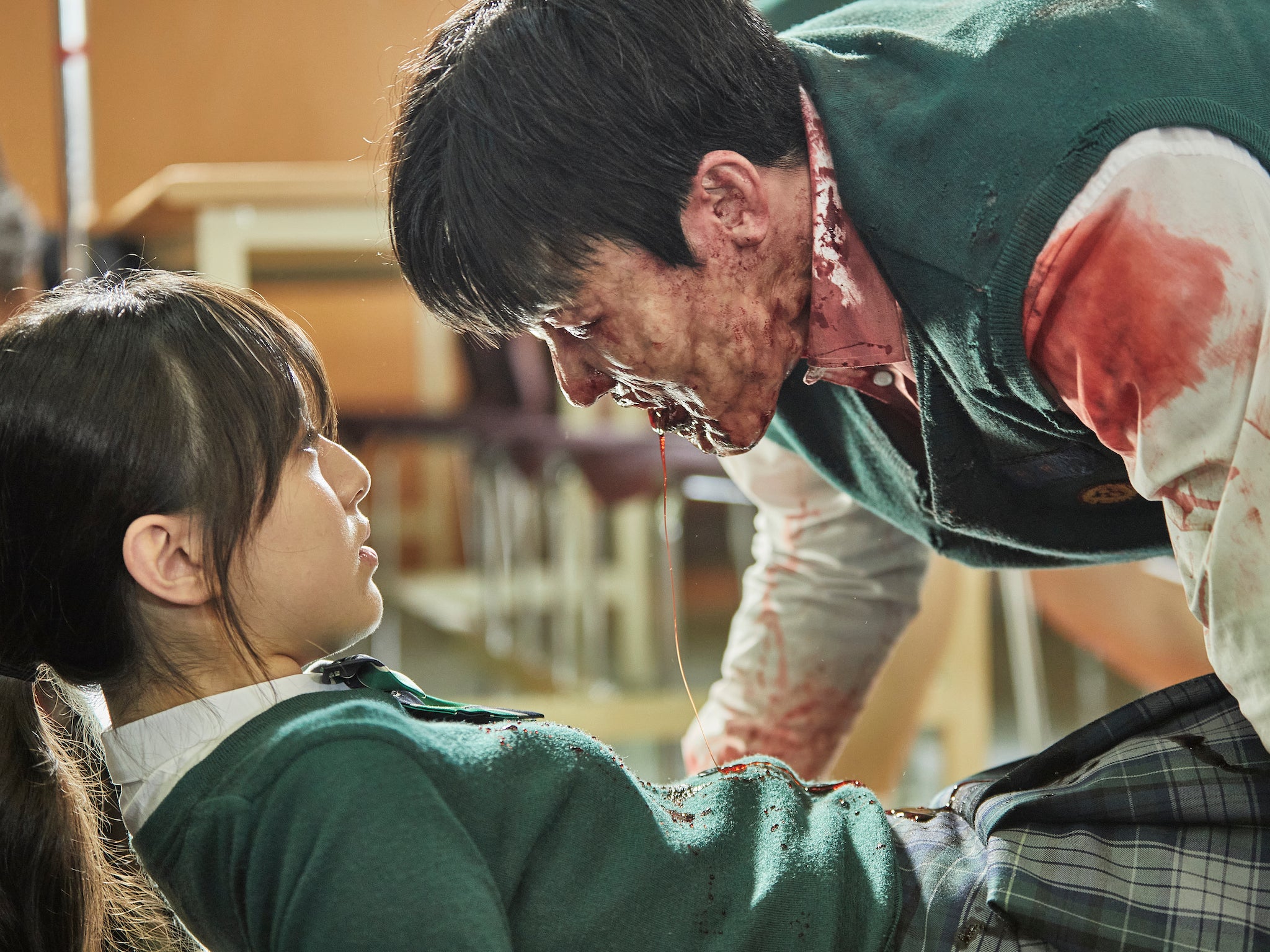Why All of Us Are Dead shouldn’t be hailed as the new Squid Game
Netflix’s new zombie drama is – according to Twitter – ‘the new Squid Game’. But as our palette for international entertainment expands, maybe we can do away with arbitrary comparisons that proclaim ‘y is the new x’, writes Annabel Nugent


There’s a new Squid Game on the scene – according to Twitter, at least. Netflix’s latest South Korean series All of Us Are Dead is the top trending show on the platform right now, as viewers tear into the hectic, bloody zombie drama. Alliances have already been declared. “All of Us Are Dead deserves more praise than Squid Game,” argued one tweet espousing the new series over the streamer’s other Korean-language smash hit from last year. Others stay loyal: “All of Us Are Dead is not the next Squid Game … one difference being, Squid Game was actually good.” Most just draw a line of comparison between the two: “Well, if you liked that then try this.”
Comparison comes naturally to an audience. “This is better than that but not as good as this” is a useful barometer for judging what we watch. And weighing up similar genres or tropes is a handy way of finding your next favourite binge (Netflix’s “Because you watched this…” category is admittedly effective). But when it comes to content not in the English language – and the smaller bank of material that exists in collective memory – that impulse to compare becomes increasingly reductive. Granted, like Squid Game, All of Us Are Dead is a white-knuckle ride of survival, but the show deserves to be regarded on its own merits. It’s good enough that it shouldn’t need Squid Game’s scaffolding to stand up.
Both series are grimly entertaining thrillers about groups of people killing each other. But unlike Squid Game – which plays on the “deadly game” genre that pits contestants against one other in twisted, sick activities (think Saw and The Hunger Games) – All of Us Are Dead is an out-and-out zombie story. The set-up is lean: a school girl is bitten by a visibly rabid rat caged in the classroom of a shifty-seeming science teacher. She then turns into an uncontrollable zombie, who suddenly starts to see her classmates as an all-you-can-eat buffet. A swiftly efficient first episode introduces us to the show’s potential victims and dictates our alliances: whom we should root for and whose deaths we should anticipate with righteous glee.
The series – created by Chun Sung-Il – is funny and self-aware in a way that refreshes a genre that’s been done to death. Trying to use a classmate’s iPhone to call emergency services, a particularly earnest teen holds up the device’s Face ID to a bloodied window, against which the phone’s owner – gurning and flesh-hungry – is throwing herself repeatedly. The series explicitly nods to its genre predecessors when the frightened students try to put a name to the chaos unfolding around them. “It’s like Train to Busan,” offers one boy, referring to Yeon Sang-Ho’s locomotive-set 2016 thriller that’s often heralded as the best zombie flick of all time. “Well, why are they [the zombies] at school?” retorts his classmate. “They should be in the movies.”
All of Us Are Dead prioritises pulp over political allegory. (If we’re making comparisons, it’d be here where the show notably diverts from Squid Game and its overtly anti-capitalist message.) After all, high school (melo)drama makes for great TV. As we’ve learned from countless other teen-aged thrillers – from Lord of the Flies and the Japanese cult classic Battle Royale to the recently popular cannibalism drama Yellowjackets – high schools and their inhabitants function really well as microcosms to observe the collapse of civilisation. (Plus, it’s really only people under the age of 18 who can get away with saying things like, “Be quiet, you zombie bitch.”) Rolled into All of Us Are Dead’s zombie saga, then, is an adolescent soap. You can tick down a list of the genre’s archetypes as they manifest on screen: valedictorian, bully, shy girl, loser, jock. The relationships among the students come to the fore, as childhood crushes translate into life-or-death political fault lines.

And this being a zombie story, life-or-death situations crop up a lot. All of Us Are Dead is as violent as they come. The show has teeth. It’s grisly and soaked through in blood, which pops against the kids’ pallid green uniforms – but the violence is also ferociously fun. For the most part, those brutalised are either characters on the periphery of the show or the unfeeling undead. It means that if gore is your thing, you’re free to enjoy the comic-book carnage without excessive sentimentality. (Of course, there are some heartbreaking exceptions as the show goes on, but mostly its scenes of chaotic violence are to behold in perverse pleasure).
It’s true that fans of Squid Game are likely to be engrossed by the similar insularity and unabashed brutality of All of Us Are Dead. It’s also true that the latter is likely to benefit from such comparisons, with people like myself willingly taking the bait. But there are other recent zombie shows that could join the conversation instead: the BBC’s criminally cancelled In the Flesh is one; Netflix’s 2019 series Daybreak is another. Sure, they aren’t Korean productions, but they would be equally if not more useful companion shows to All of Us Are Dead than Squid Game. And as our palette for international series and films expands, maybe we can do away with arbitrary comparisons that proclaim “y is the new x”. Contrary to what headlines or Netflix’s Top 10 ranking might have you believe, it is possible for more than one non-English series to be great at any given time.
‘All of Us Are Dead’ and ‘Squid Game’ are available to watch on Netflix
Join our commenting forum
Join thought-provoking conversations, follow other Independent readers and see their replies
Comments


Bookmark popover
Removed from bookmarks